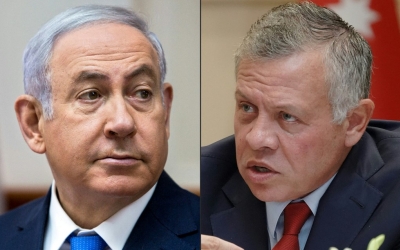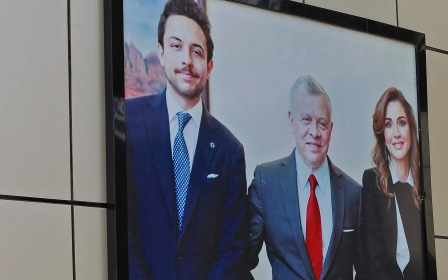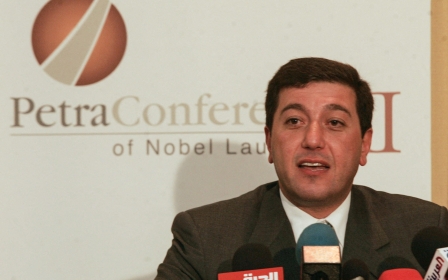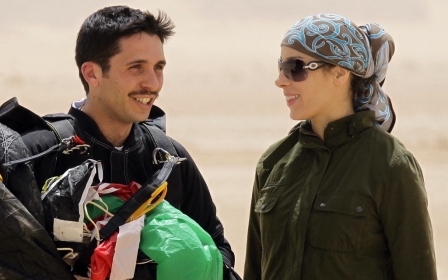Israel agrees to increase water supply to Jordan after pressure from Biden
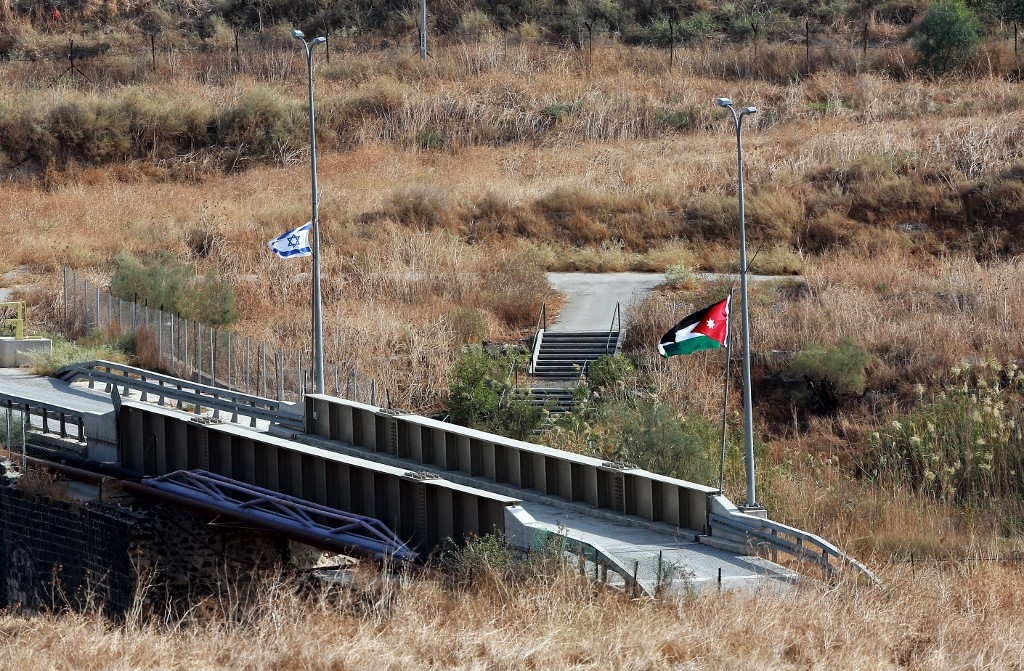
Israel has agreed to increase water supply to Jordan following weeks of delays and US pressure, local media reported.
Committed to providing Jordan with water provided under the 1994 Wadi Araba peace agreement, every year the supply is increased. But this year Israeli Prime Minister Benjamin Netanyahu delayed approval despite recommendations by Energy Minister Yuval Steinitz and water authority officials to comply.
Under the agreement, Israel pumps water out of the Jordan river and transfers it back to Jordan during dry spells, as it remains one of the world's most water-scarce states.
Jordan's request was submitted several weeks ago through the joint Israeli-Jordanian water committee, as Amman had been experiencing a severe water shortage.
Israeli newspaper Haaretz had reported that the delay was in retaliation for Jordan interfering with Netanyahu's plans to travel to Abu Dhabi last month, though Middle East Eye could not independently confirm such a motive.
US President Joe Biden - seeking to maintain relations between Israel and Amman - encouraged Israel to approve the increase. MEE has reached out to the State Department to inquire about the extent of US diplomatic efforts on the issue.
Still, Israel's agreed increase in the water supply will not be enough to lift Jordan out of its severe water crisis, leading Amman to seek additional boosts, Israel's state broadcaster reported on Tuesday, citing unnamed Jordanian sources.
Netanyahu vs King Abdullah
Relations between Israel and Jordan became strained in March when Israeli authorities cancelled Jordanian Crown Prince Hussein bin Abdullah's visit to the Al-Aqsa Mosque compound in occupied East Jerusalem.
The next day, Amman denied Netanyahu's helicopter access to Jordanian airspace, which caused the prime minister to cancel his trip to the United Arab Emirates. Though Jordan gave Netanyahu clearance to fly through its airspace after several hours, he decided not to fly to the UAE.
The snub took place amid a fierce election campaign in Israel, just weeks before the vote.
Earlier this month, Jordan issued a statement calling on Israel to put an end to daily incursions by Israeli settlers into the Al-Aqsa compound, which remains under the control of Israeli security and intelligence forces.
At the time, Jordan's former deputy prime minister, Mamdouh al-Abadi, told MEE that relations between Netanyahu and Jordan's King Abdullah had become increasingly strained.
"Netanyahu is a radical right-winger and does not believe in the two-state solution or the peace process, and has an expansionist view towards Jordan," he said. "He has run into a brick wall with Jordan because of its rejection of annexation and of (former US President) Donald Trump's 'deal of the century'."
Middle East Eye propose une couverture et une analyse indépendantes et incomparables du Moyen-Orient, de l’Afrique du Nord et d’autres régions du monde. Pour en savoir plus sur la reprise de ce contenu et les frais qui s’appliquent, veuillez remplir ce formulaire [en anglais]. Pour en savoir plus sur MEE, cliquez ici [en anglais].


